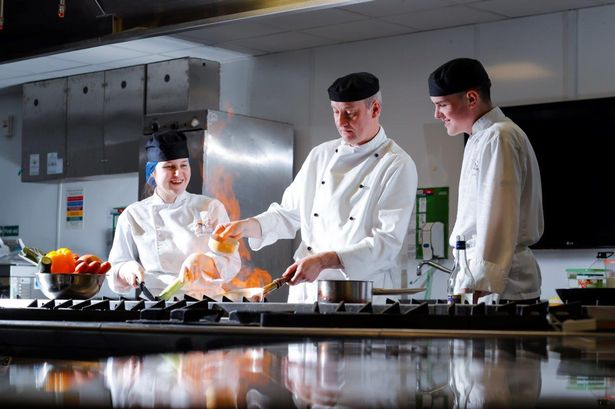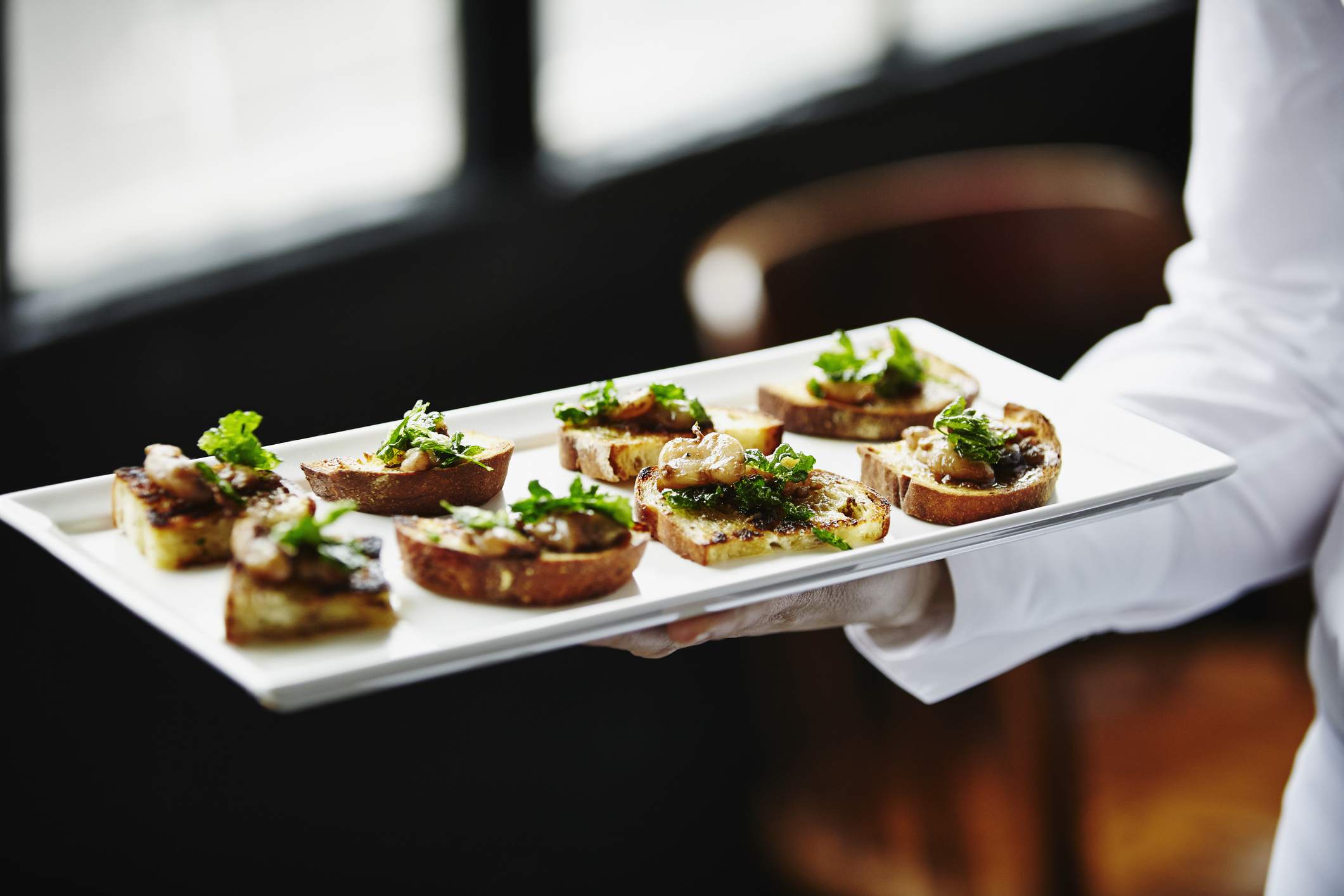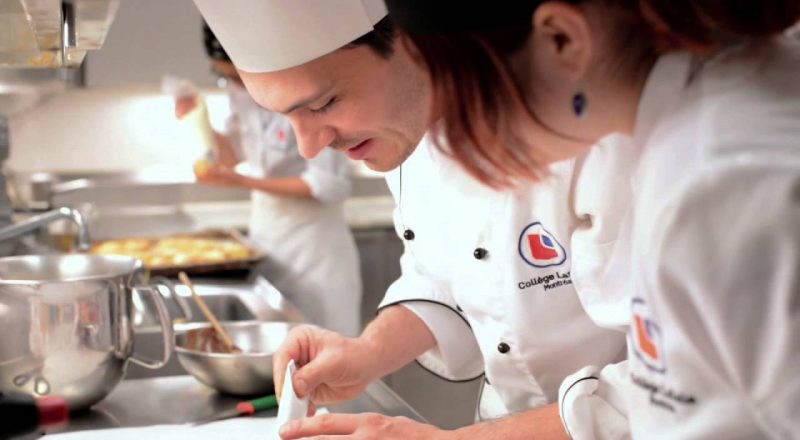It is no accident that cooking shows and celebrity chefs are popping up on TV and the internet. From a few decades ago, Gastronomy has benefited from an enormous appreciation around the world. As a result, many people decided to take advantage of the wave to fulfill their dream of working with what they like!
But if on the small screen the life of someone who cooks professionally seems to be just glamor, the reality is a little different. Far beyond pure talent or luck, whoever wants to pursue a career in the restaurant world needs dedication, willpower, and, above all, excellent training. For this, the most suitable route is the Faculty of Gastronomy.
But how do you choose a quality course to turn your passion for food into a profession? That’s what we will answer in today’s post! Keep an eye and learn to identify a good technology course in Gastronomy!

Theoretical subjects
Didn’t expect this one? Know that studying Gastronomy does not mean spending all the time on the edge of the stove! A good technologist must know much more than preparing delicious dishes with precision and technique.
If you really want to guarantee your entry into the job market, you’ll have to learn how a restaurant works inside and outside the kitchen, from the administration office to the organization of the salon, where customers enjoy their dishes.
For this reason, a good technology course in Gastronomy usually begins by dedicating much more time to the classroom than to the culinary laboratory, including subjects such as:
- History and principles of Gastronomy;
- Food science;
- Menu planning and cost composition;
- Gastronomy Management;
- Anthropology and culture;
- Salon and event services.
With these disciplines, you will learn about the ideas and theories behind Gastronomy, as well as more objective issues, such as the organization of events and the management of a restaurant, the elaboration of menus, food properties and so on.
Practical courses
Supported by the knowledge acquired in the theoretical classes, when the time comes to go to practice, you will be much more prepared to deal with Gastronomy without amateurism.
In fact, although the love of cooking is essential in your decision to pursue this career, it is worth mentioning that it is not necessary to even know how to fry an egg before going to the Faculty of Gastronomy, see? That’s because, even if you are already weekend chef at home, in the course you will review everything from the basics, in order to learn how to cook with the techniques and the vision of a professional.
In addition, as you progress through the college curriculum, you will discover and study a variety of different culinary traditions and specialties, through classes such as:
- Technical meat and poultry cuisine;
- Technical fish and seafood cuisine;
- Panification;
- Confeitaria;
- International cuisine;
- Brazilian cuisine;
- Drinks and pairings.
These classes will present a wide panorama of Gastronomy so that you can get in touch with its different areas and be able to choose one for yourself, using what you have learned about the others to become a professional complete.
Hours
The minimum total workload for a technology course in Gastronomy, according to the MEC, is 1600 hours, not including the internship time. So, ideally, you should have between 18 and 20 hours of classes per week, depending on the length of the semester and the holidays. At this rate, it is possible to finish the course in 2 years (or 4 periods), which is the average duration of higher education courses in technology.
In good colleges, the workload is already distributed and organized so that you can study part-time during the 4 semesters of the course, with more or less 5 subjects per week and a progressive curriculum, which increases in difficulty and sophistication as you go.
Supervised internship
In the last semester of the course, after being almost trained and ready to enter the job market, it is essential that the college offers a supervised internship as part of the curriculum. This experience is very important for you to get to know the daily life of a gastronomy professional, make relevant contacts for your future career and enrich your training with practical experience.
The internship is also the place where you will be able to test the knowledge acquired in college, without all the pressure of a normal contract, where the employer already expects you to know how to act under any circumstances.
With the help of your college supervisor, you will be able to use that time in the kitchen of a real restaurant to make mistakes, learn, experiment and grow in your area before you enter the professional world.

International experience
If you are a fan of Gastronomy, you should know well how this is an extremely international field. And we’re not just talking about the name of the dishes, the cooking techniques and the fancy restaurants, see?
In fact, being connected to global trends, meeting professionals who are constantly revolutionizing culinary processes worldwide and having the main gastronomic traditions on the planet at their fingertips is as fundamental to being a good technologist as knowing how to sharpen your knives and adjust the oven temperature!
So, when choosing a college to make your dream come true, be sure to check if it has an agreement with educational institutions outside Brazil, offering its students the chance to spice up their grades with university exchanges and courses abroad.
From a simple holiday workshop to one or more semesters abroad, studying abroad is a big plus in your curriculum, especially in a field like Gastronomy!
Funding opportunities
Finally, to start this project on the right foot, find out about the payment and financing options of your Gastronomy faculty. Some of the programs that can make a difference in your budget are:
Remember that if you don’t need just talent and luck to fulfill your dream of working with food, the more proactivity and dedication you have, the further you will reach your career.

